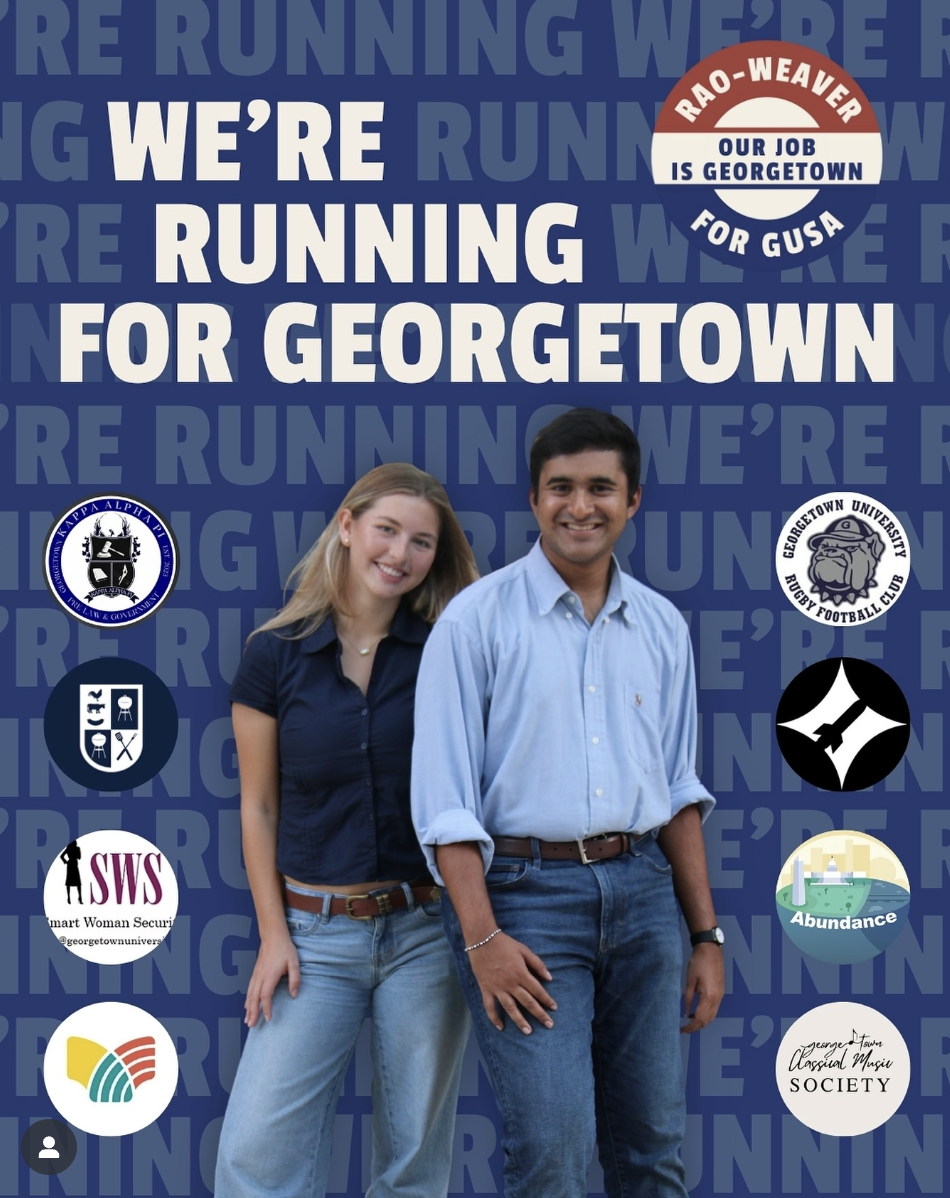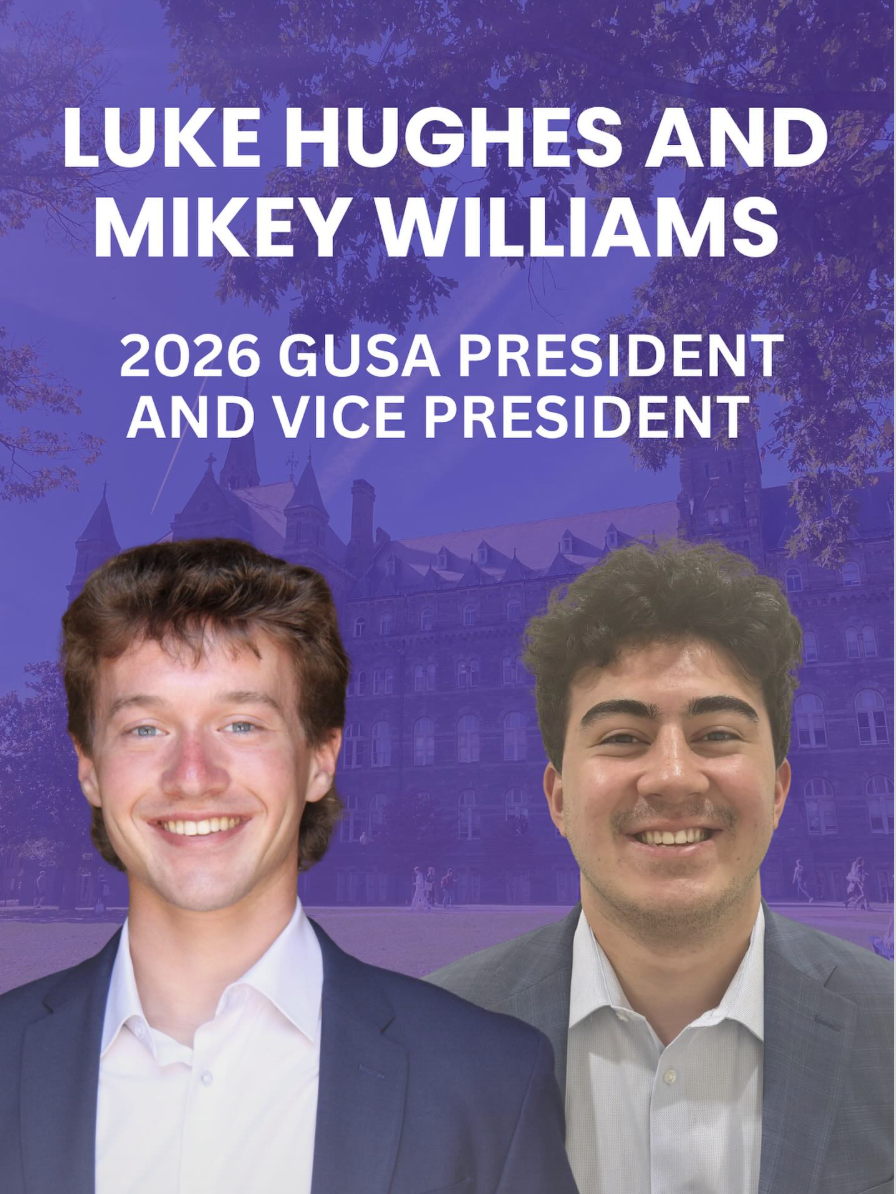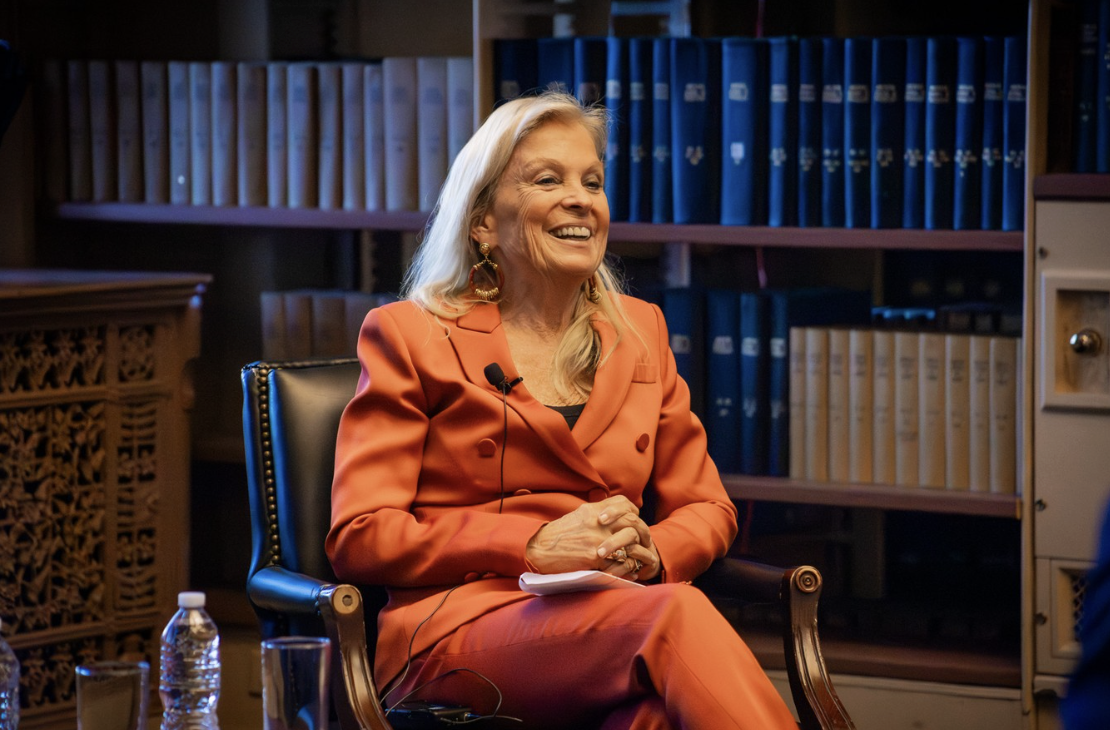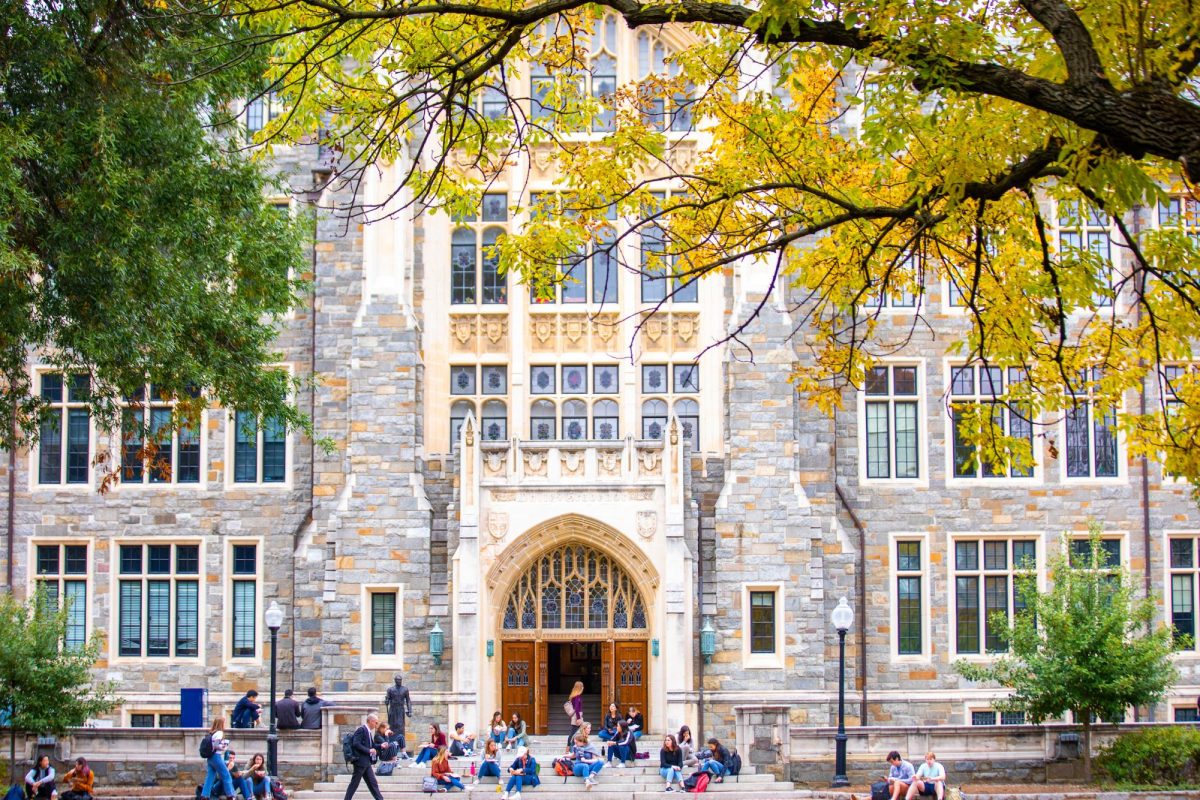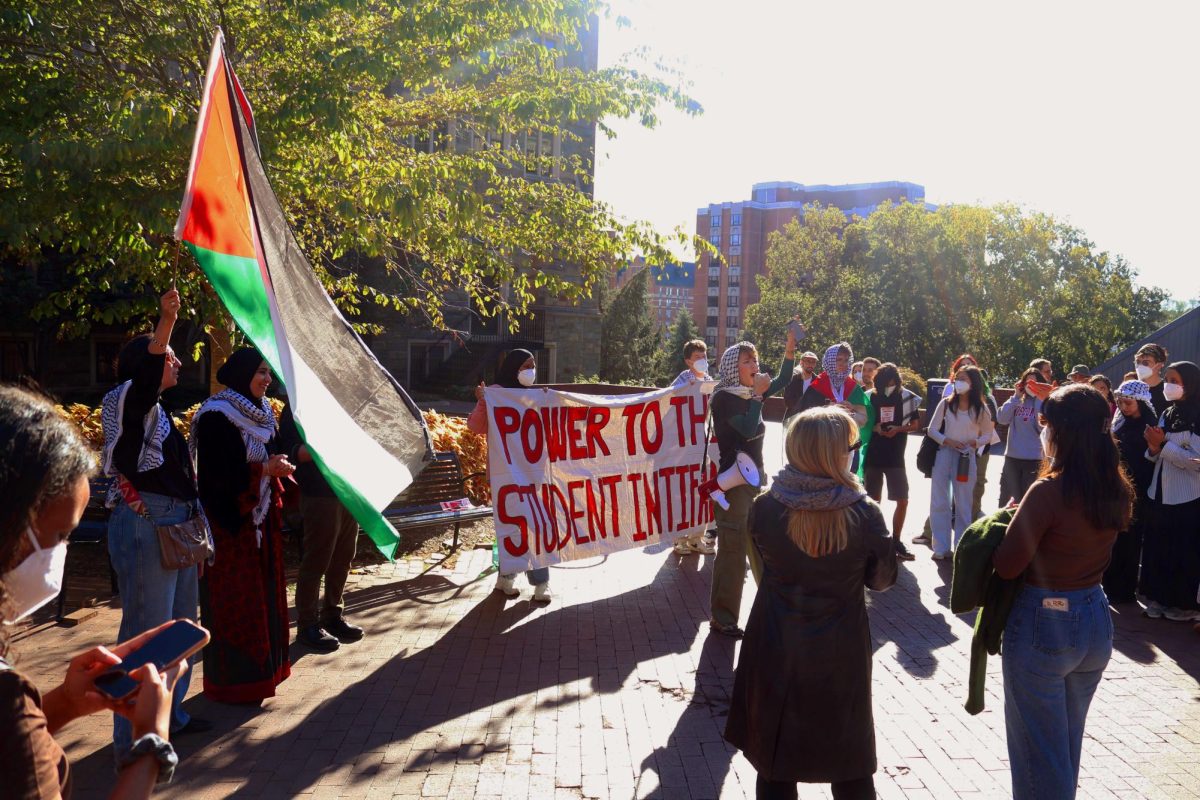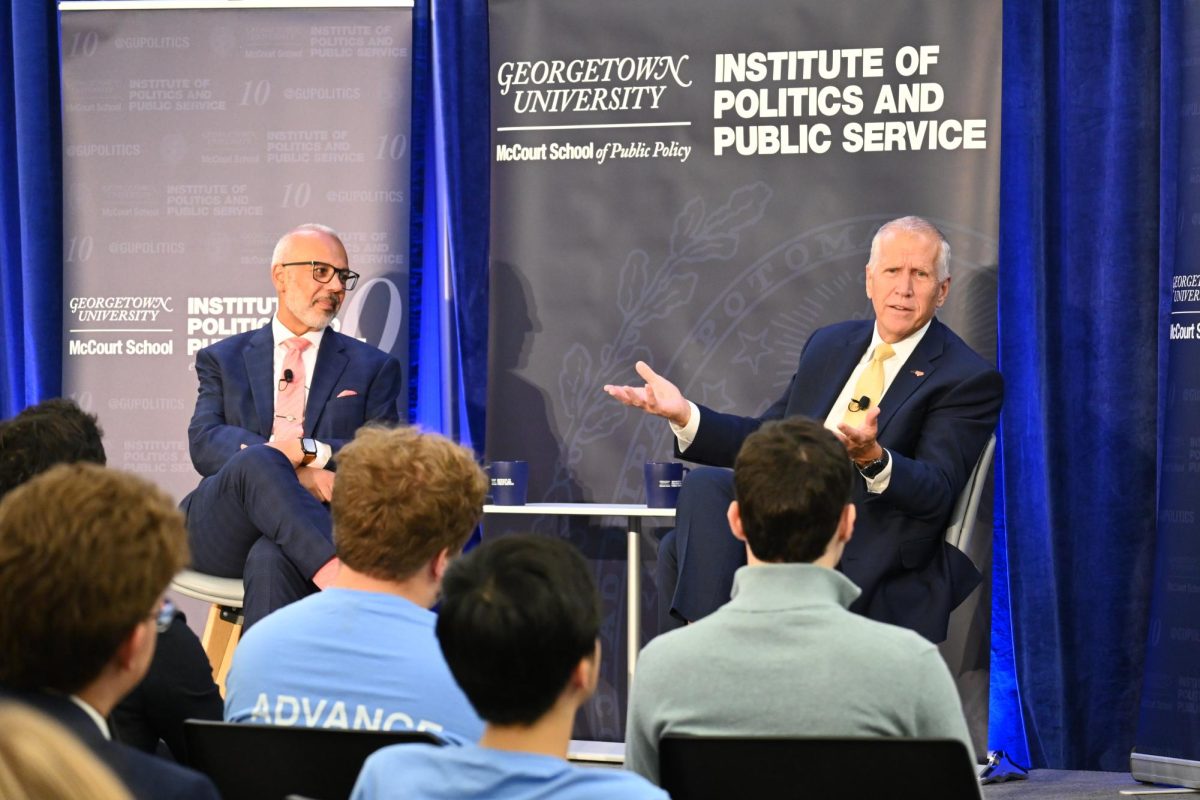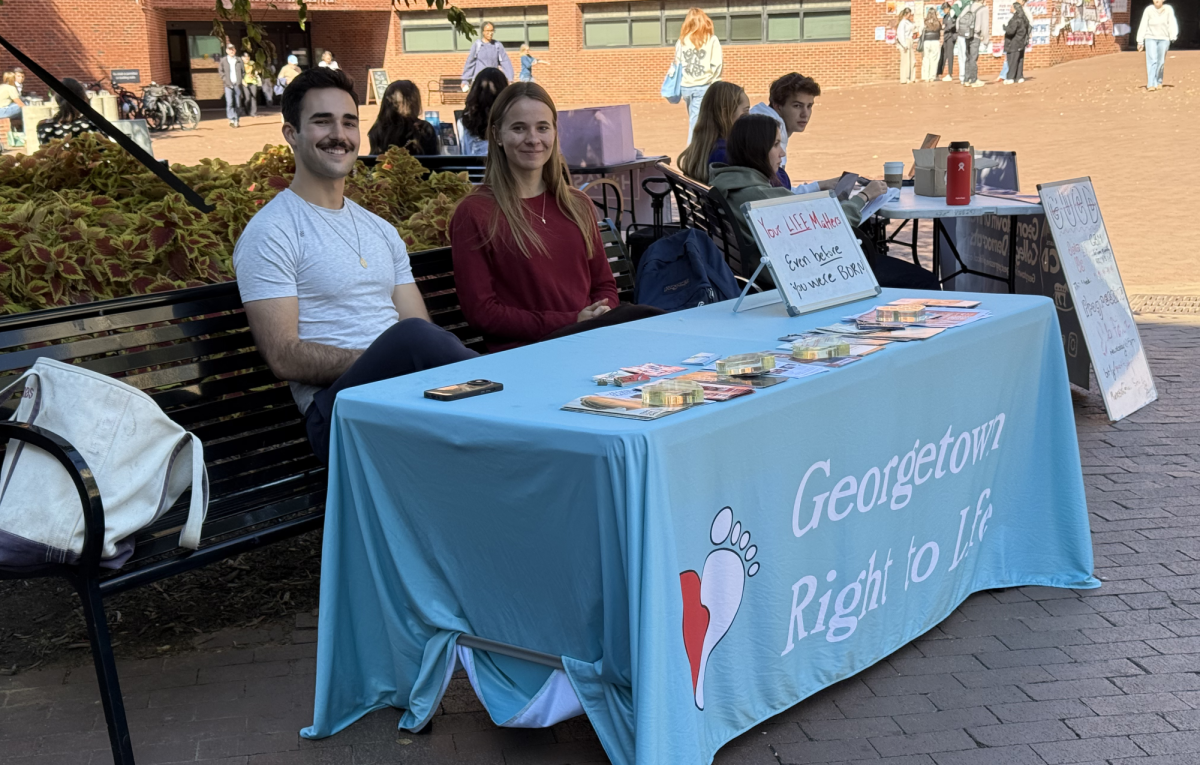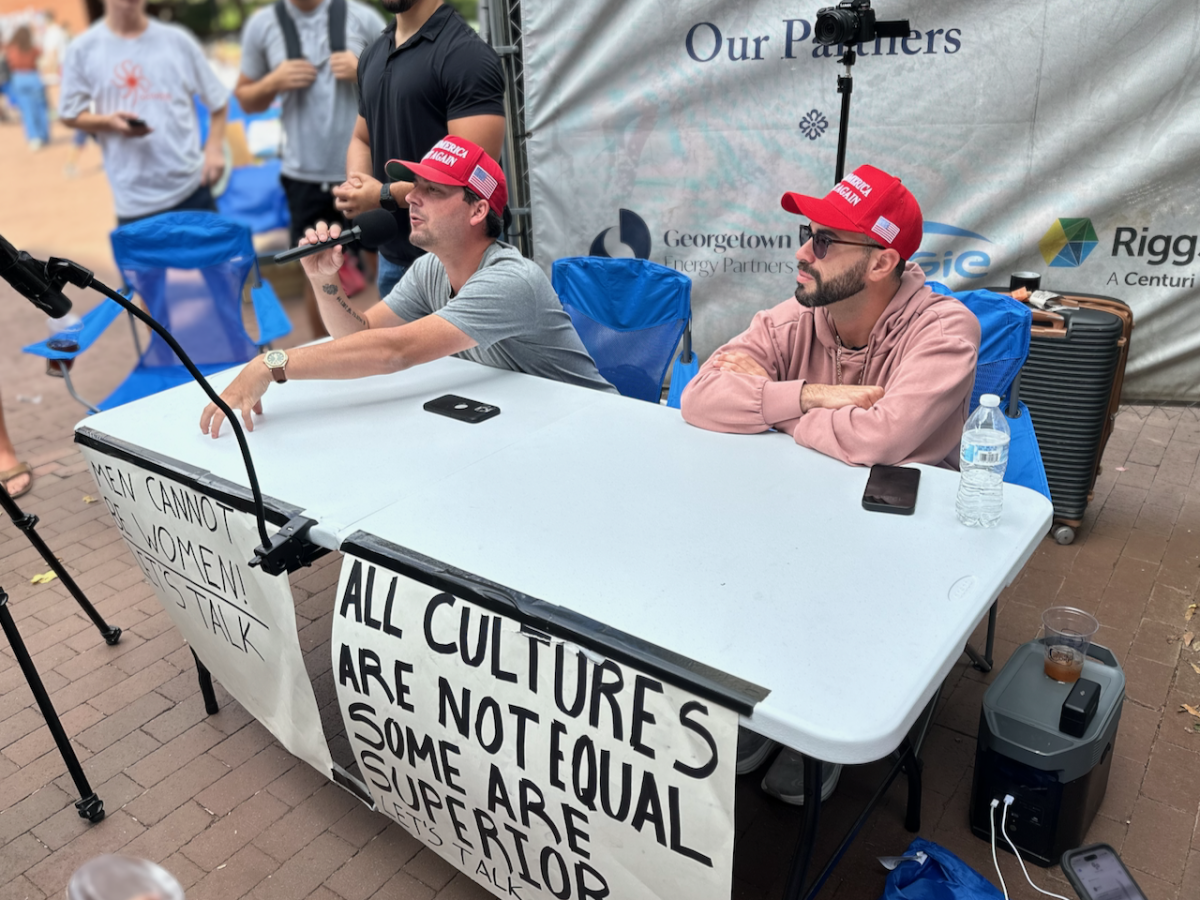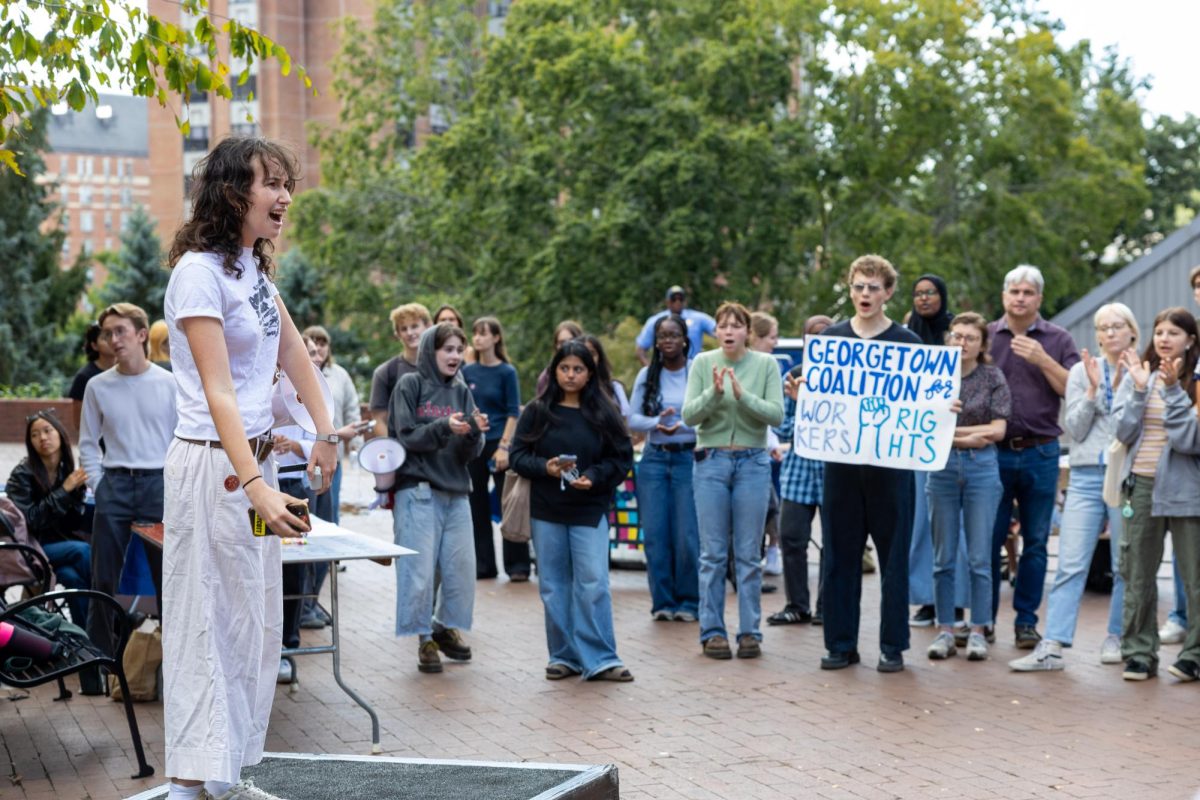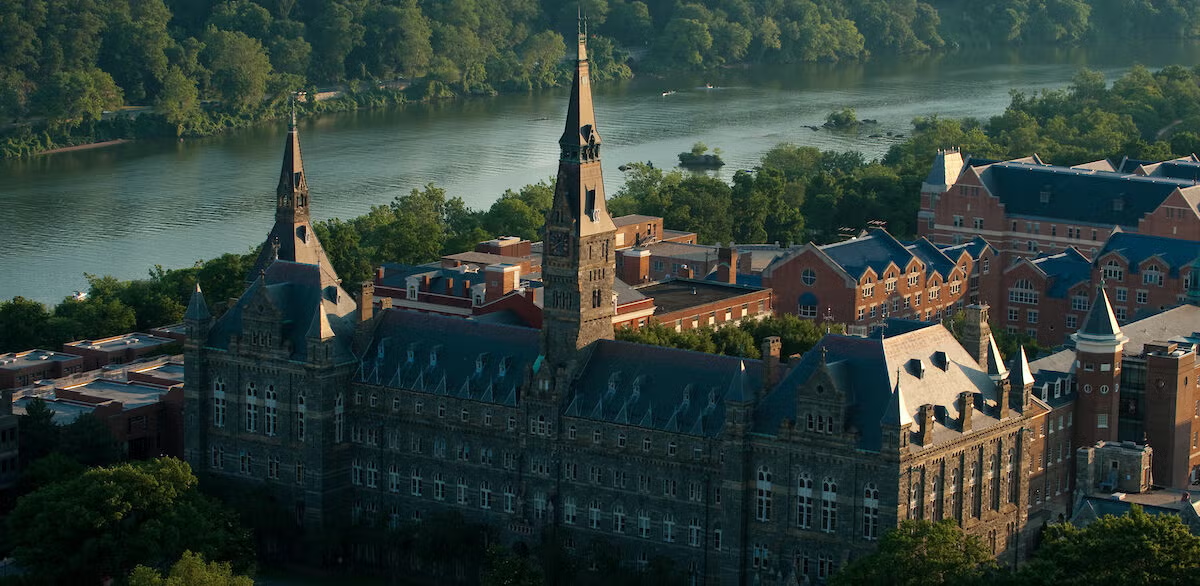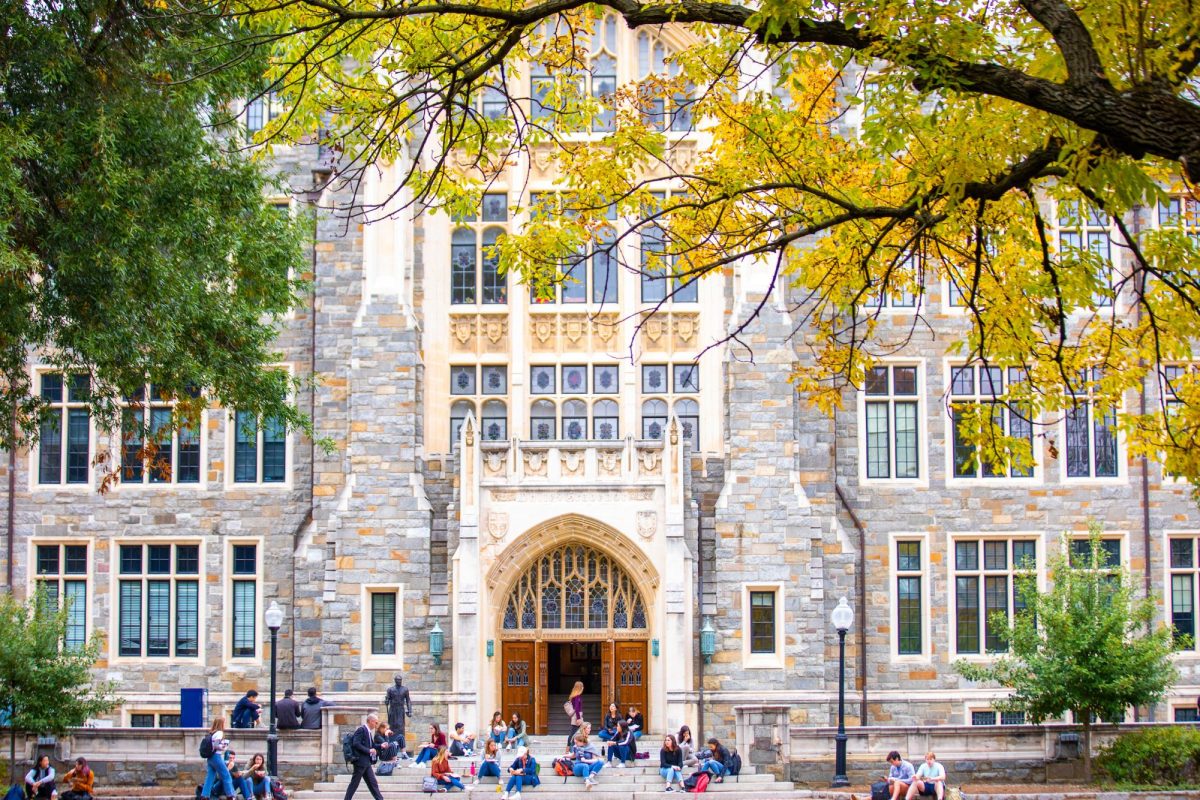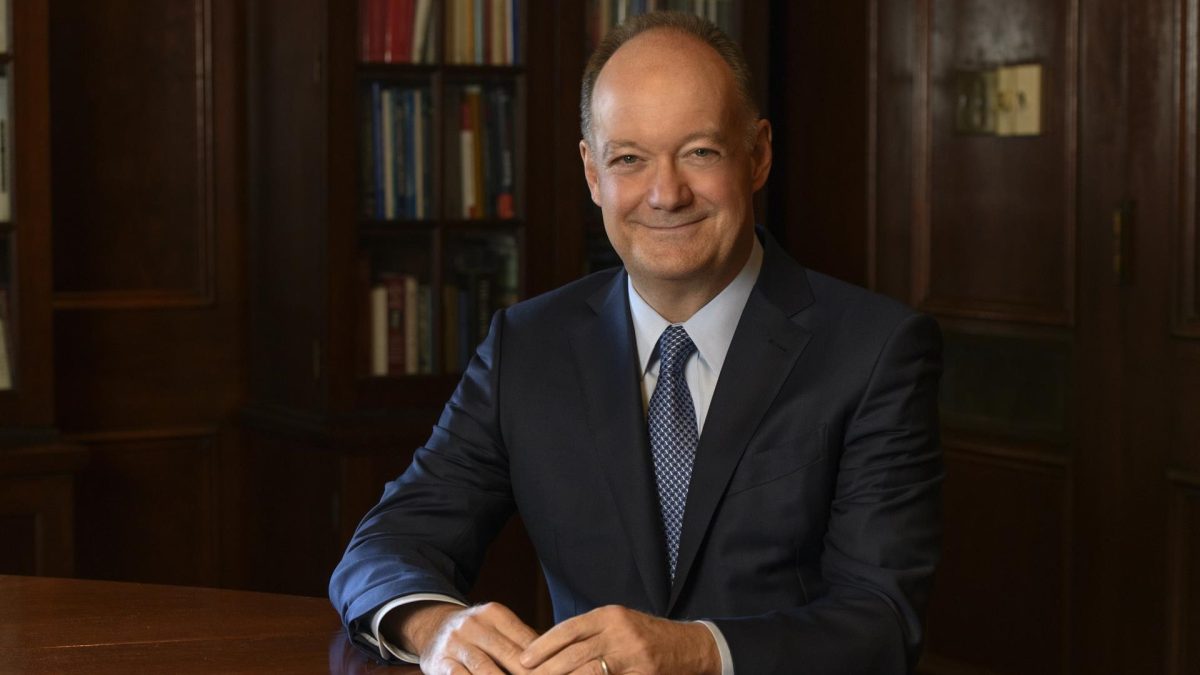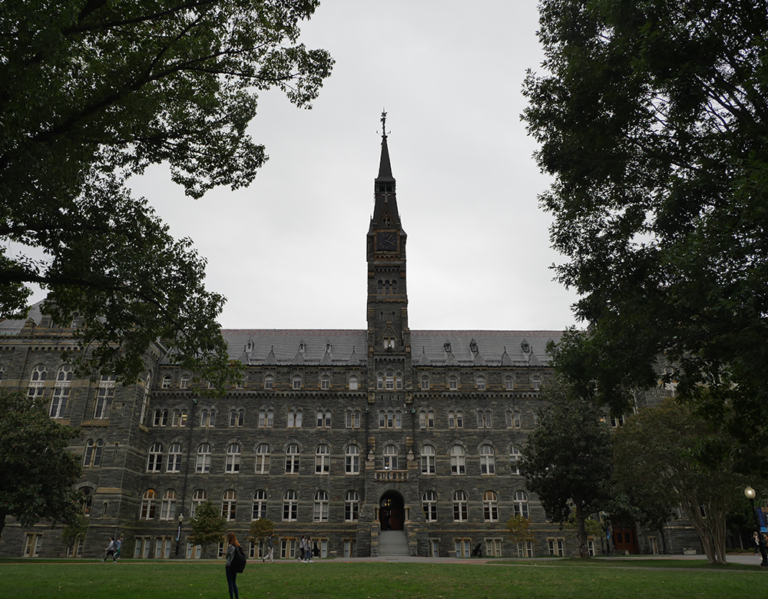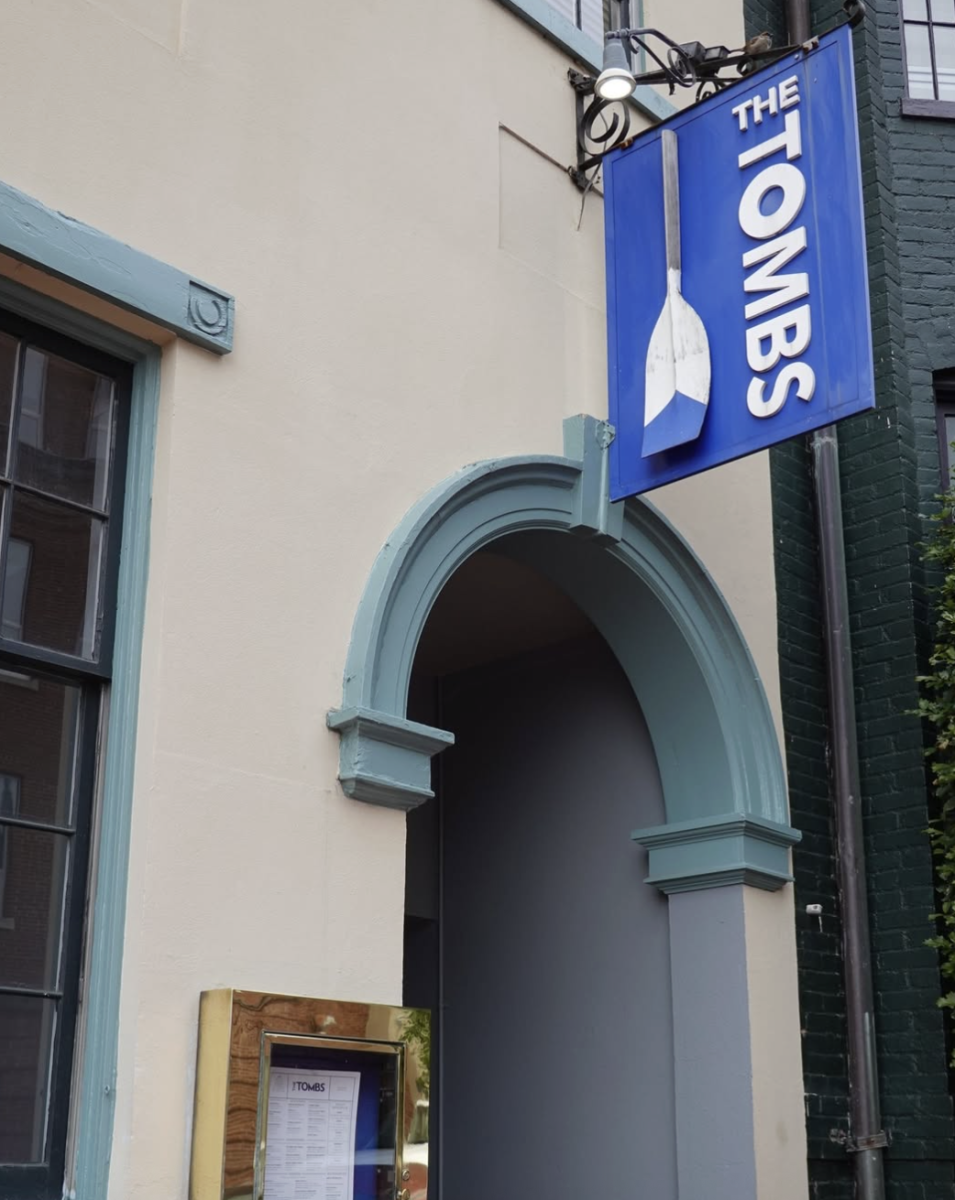Darius Wagner (CAS ’27) and Nazgol Missaghi (CAS ’28), running for Georgetown University Student Association (GUSA) president and vice president, aim to improve access between students and university administrators and prioritize inclusivity if elected.
The Hoya sat down with the candidates to discuss their policy platform. Wagner and Missaghi highlighted improving student life by increasing club funding methods, creating listening sessions with administrators on dining and student spaces and pushing the university to reject federal intimidation. Voting opens Oct. 22 and closes Oct. 24.
Below is a partial transcript of their interview.
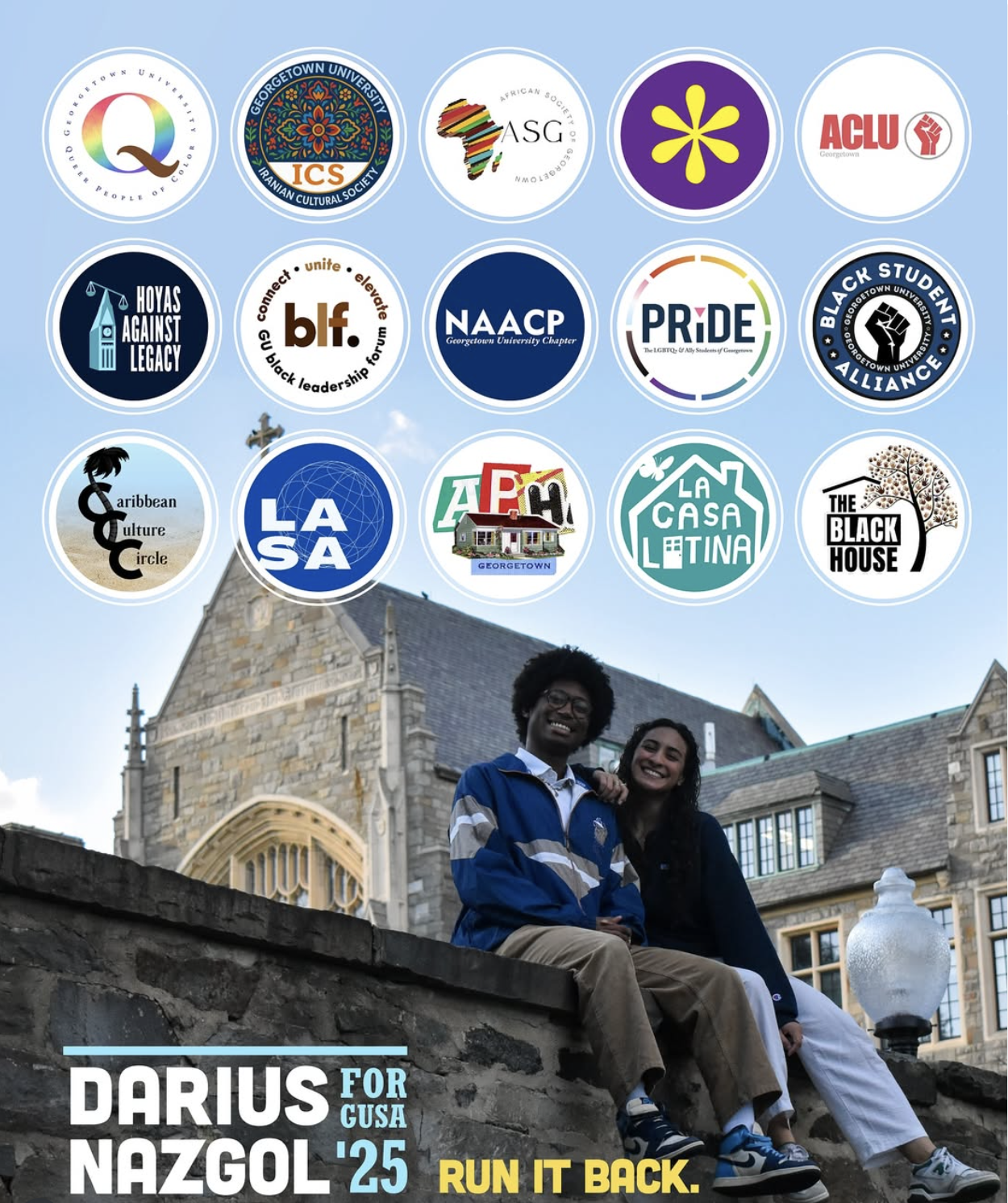
Tell us a bit about yourselves and your role in the Georgetown community.
Wagner: I feel like so much of my Georgetown experience has been campus advocacy — also some other fun things. I helped found Hoyas Against Legacy among a few other students. I have been a D.C. Reads tutor since my freshman year at our Drew Elementary site — I love those kiddos dearly. And I’ve also served as student vice president. In all these roles, I think I’ve gotten a great insight into student life, student experience, both on campus and outside.
Missaghi: I’m involved in a real diverse range of organizations. I believe the most prominent has definitely been working with the Center for Social Justice, starting as a pre-orientation participant and then leader of FOCI, the first-year orientation to community involvement, which really gave me a scope on the Georgetown community on and off the Hilltop. I also serve as vice president of internal for our Iranian Cultural Society.
Why are you running for GUSA? What experiences do you have that qualify you for this position?
Wagner: As a Black student and a first-gen student on campus, I know what it’s like to not have access to resources or to feel like my voice hasn’t been heard enough. And so it’s really important to be there and to help advocate for needs that students have. I’m running for president because I feel so deeply about bettering student experiences.
Wagner: Over my time as vice president, we have a proven track record of being able to deliver for students. And we have connections with admin that will make it easy for us to hit the ground running on Day One to begin delivering for students.
Missaghi: I’m really excited to continue the pathway of making Georgetown a very inclusive space, getting rid of that red tape that clubs, organizations are facing, especially with the current crackdowns on the administration and on our student body as a whole. And Darius and I are really pushing to make sure everyone is aware of what our values are and where we stand and how we are going to continue supporting the student body.
If elected, what are your top priorities?
Wagner: We have to find ways to make it easier for clubs and organizations to host and afford to host on campus. So part of my policy, also with my experience of meeting regularly with the CSE, has been to create a three-person committee that will work closely with the CSE to find ways they can reduce barriers to hosting events and getting access to those fundings.
Wagner: In this time where we’re seeing relentless attacks on academic freedom, on diversity, we think it’s very important to have a student administration that is prepared to stand up to admin to say, “We’re always standing on protecting our diversity programs, protecting our academic freedom and not capitulating to the Trump administration.”
How will you address GUSA’s low approval and skepticism from the student body? How will you keep voters engaged with GUSA throughout the year if you win the election?
Wagner: We want to show where GUSA has the authority to help make decisions, to help you better your lives and where we can bring in our connections with admin to address unique issues that you all have. We’ve revamped our comms page. We are going to create office hours.
Missaghi: We are going to continue using our voices, continue using the direct line that we do have to the administration, because emails can be very easily ignored, but it’s hard to ignore someone standing right in front of you.
Recently on social media, there has been speculation around secret societies playing a role in GUSA elections. Are you currently or have you ever been in any anonymous societies such as the Stewards Society, B-Frat or 202?
Wagner and Missaghi: No.
The Henshaw-Wagner platform last year promised goals like guaranteeing students mental health days and centralizing AI policy, many of which were not eventually fulfilled. Given this, how do you believe you will be able to accomplish the goals you set and follow through on your campaign promises during this term? Do you believe you will be able to achieve all your goals or most of your platform?
Wagner: Within our Ethan-Darius platform, we have pushed on so many of those issues; we delivered on some. There are many more that we still have to deliver on, and there are many more whose objectives are shifted based on what is possible. And I think what you’ll find is that we are the campaign that has a platform that is ready to deliver and get running on day one, that is grounded, and we are the only campaign that is going to be ready to know the contacts and admin to get the ball moving on policy.
Many of your platform goals seem to involve larger structural changes mixed with specific aspects of student life. How will you balance these issues when your term only lasts a year?
Wagner: We have the experience in balancing pursuing large projects with specifics, and we will continue to deliver on that experience.
Missaghi: We have spoken to over 35 groups here on the Hilltop, and that has been absolutely transformative, hearing different perspectives and just how that is impacting day-to-day life here at the university. That’s exactly how we’re going to go through this next term.
Your platform details that you will “push the [university] President to not succumb to federal intimidation.” How will you build this goal in the wake of increasing concern for student life at the intersection of the federal government?
Wagner: At times in life, you have to stand up to a bully. I’m not saying that GUSA is going to walk down to the White House, or Trump’s going to stop doing all this. But we recognize that when students make their voice heard, when those in power are able to stand on their values, as we saw the Law campus do, we see that there’s power in that, and we cannot give up that power, especially as we see so much backtracking in many other institutional spaces.
Do you support ending legacy admissions to Georgetown?
Wagner: I’m for ending legacy admissions. At its core, fairness matters, equity matters. We should not be giving access to Georgetown based on wealth, but based on a student’s ability.
Do you support university divestment from companies with ties to the Israeli military?
Wagner: I’m for.
Do you support increasing the university investment in the Capitol Campus over the next few years?
Wagner: I’m for investing in the Capitol Campus. I think as you have more students go down there, it’s going to be important that we don’t abandon other Hoyas.
Do you support requiring GUPD presence at smaller club-sponsored events?
Wagner: I’m against this. It’s just been crushing clubs.


